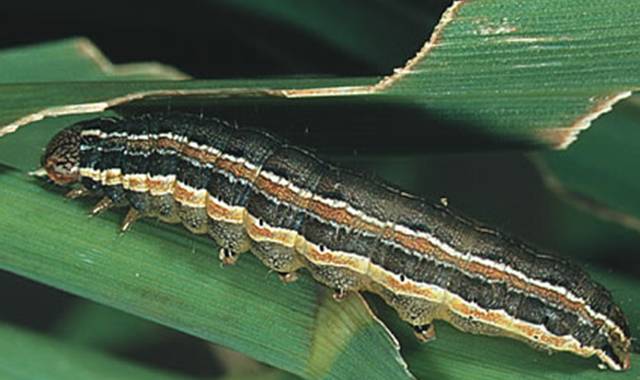
The ManicaPost

INABILITY to combat the current outbreak of the gregarious fall armyworm coupled with the potential outbreak of another species of caterpillars — the African armyworm — paints a gloomy picture to what promised to be the mother of all agricultural seasons.
Rightly, farmers had poured blood, sweat and tears in their farm operations, complementing the issuance of seed, fuel, chemicals, fertilisers and technical advice by Government and the heavens were this season more generous with rains compared to last season.
The dedication, perseverance and discipline among most farmers, to pull the wagon of food insecurity beyond the drift was amazing, and all things being equal, Zimbabwe ought to get a bumper harvest.
Concerns over lack of knowledge and skills by maize farmers, leading to severe maize damage, must be taken seriously because fall armyworm outbreak is proving a single potential threat to food security as all maize producing provinces have raised the alarm on the emergence of the pest upsurges in maize fields.
These congruent reports about concurrent armyworms population build-up throughout the country support evidence for the emergence of a national problem because the fall armyworm is highly polyphagous and prefers to feed on economically important crops such as maize, millet, sorghum, rice, wheat, and sugar cane. Other crops of major agricultural importance attacked by the pest include cowpea, peanuts, potato, soybean and cotton.
Unfortunately for Zimbababwe, the fall armyworm outbreak is a new agricultural phenomenon and this is probably why since their detection at the beginning of the season, there has been no break through it combating it.
As is often the case in developing countries, the poorest farmers are worst affected, as they cannot afford pesticides to limit the damage. In light of this, farmers are being encouraged to take a proactive approach to ensure that outbreaks are minimised.
Best described as resilient, the pest is very destructive and exhibits good survival skills which mimic an army, hence its name, integrated pest-management strategies should be undertaken to combat the population growth.
One such intervention strategy should be training to improve farmers’ knowledge and skills in managing the pest. This is critical because our farmers mistaken the fall armyworm for the stalk borer, and hence waste resources to buy wrong chemicals to combat the wrong pest and the pest’s real biology, it would be too late.
The pests would have grievously injured the crop.
Research has shown that Brazil, the third largest maize producer in the world, considers fall armyworm as the most important pest on this crop, causing damage estimated at more than 400 million dollars annually.
So, Zimbabwe should not leave the fight against this pest to chances.
However, if revelations by the Zimbabwe Farmer’s Union (ZFU) director Mr Paul Zakaria that the country has no adequate chemicals to combat the pest are true, then we are in a fix as a country.
ZFU, which draws membership from across the country, argues that pesticides on the market were overwhelmed by demand, and have since vanished from the shelves. This calls for prioritisation of imports, failure of which spells disaster for a nation blighted with food insecurity, and coming out of the hoods of the El Nino induced drought of last season.
The best practices for the management of the pest include the use of insecticides, host plant resistance and biological control. Its control still largely relies on the use of synthetic pesticides, though at times this has led to the emergence of resistant pest populations. Monitoring activities, together with alternated application of insecticides such as pyrethroids, carbamates and organophosphates are recommended as immediate measure.
Other countries like Zambia, in the past, enlisted the expertise of Professor Kenneth Wilson, of Lancaster University, whose research was supported by programmes such as the Sustainable Agriculture Research for International Development (SARID) and co-funded with DfID, helped establish a state of the art laboratory in Tanzania to formulate the virus locally to counter the threat posed by the voracious armyworms.
This means that the use of expensive imported chemical pesticides could be reduced or eliminated entirely which benefits people and their local environment. The use of local expertise also helps to develop indigenous skills and promote more equal knowledge exchange.



